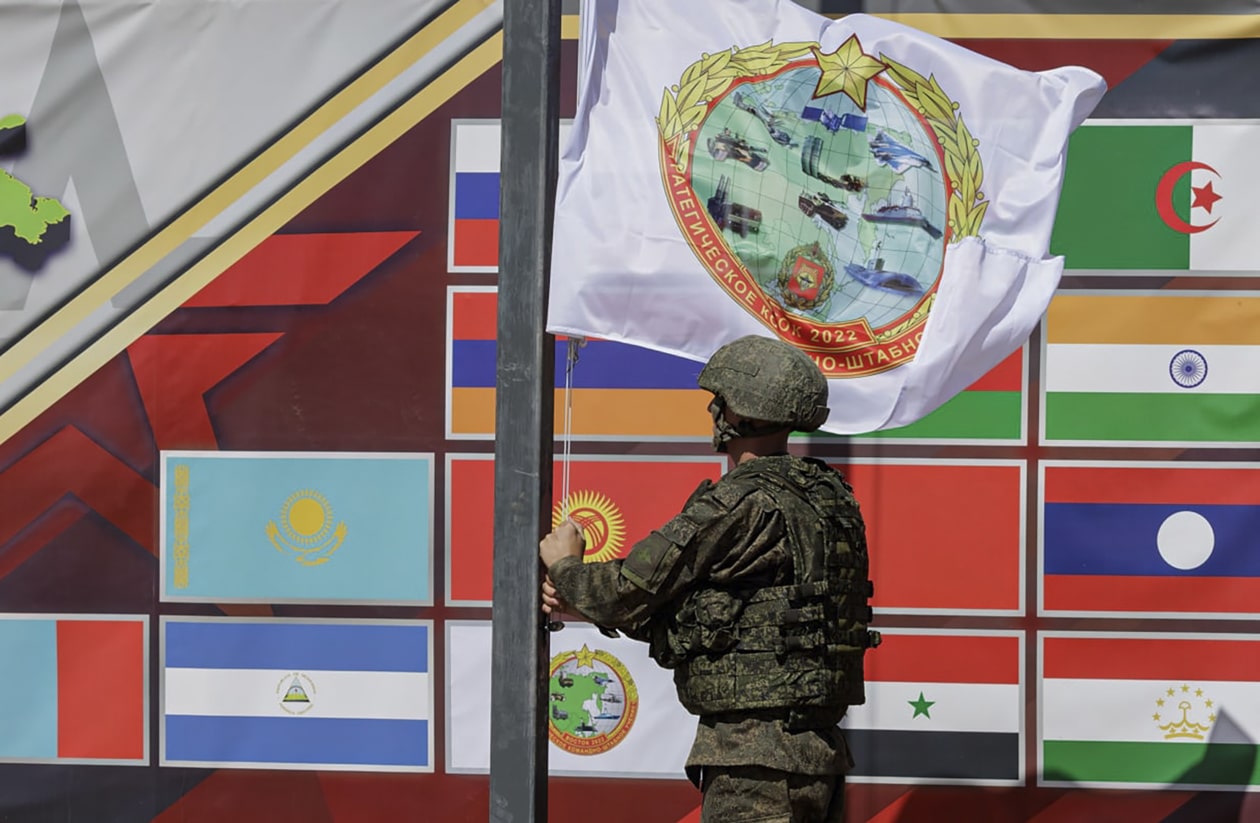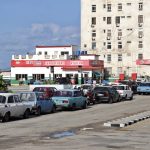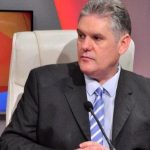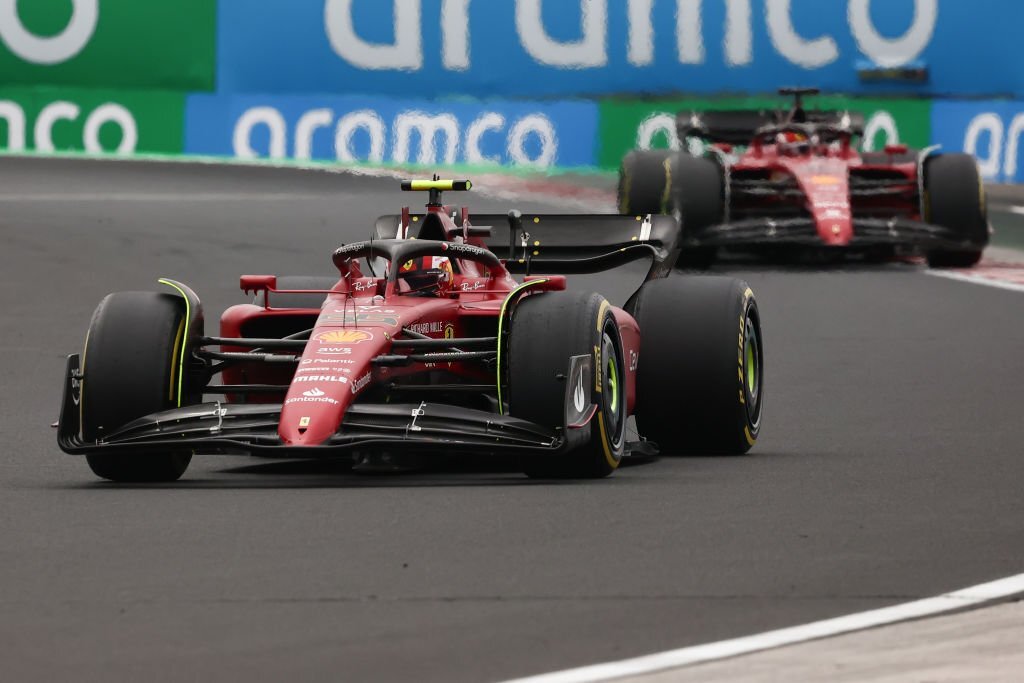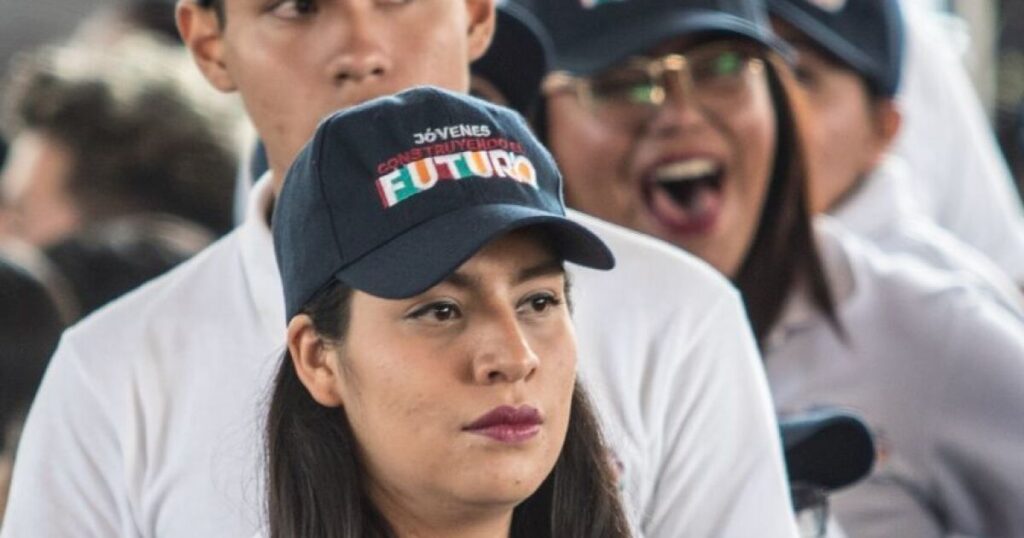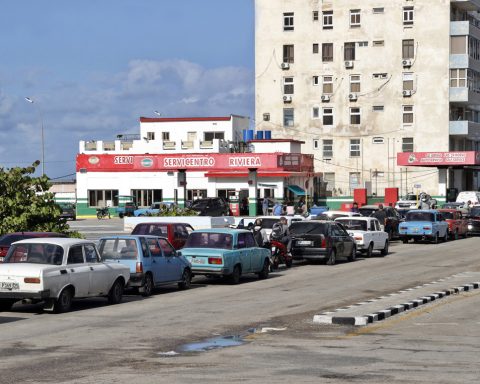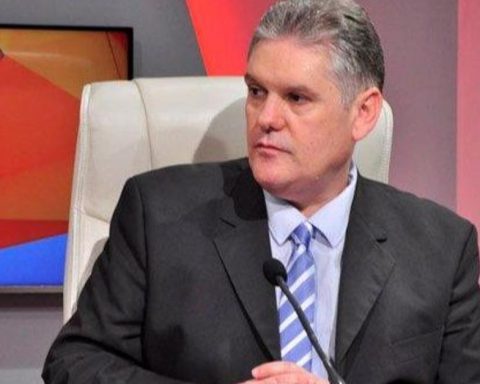Daniel Ortega delivered a speech at the celebration of the 43rd anniversary of the founding of the National Army (EN), without mentioning the serious crisis that Nicaragua is experiencing. He did not refer to any current events such as the exhibition of political prisoners, the persecution of the Catholic Church, or the massive migration that has caused the worsening of the crisis.
Ortega and the head of the Army, General Julio César Avilés, did not speak about military maneuvers taking place in Nicaragua with the participation of foreign troops, or on the participation of Nicaraguan troops in military exercises Vostok 2022 (East 2022) taking place in Russia, ending on September 7.
This Thursday, September 1, Russia began gigantic military maneuvers with the participation of 50,000 troops, 5,000 units of heavy weapons, 140 aircraft and 60 ships, the Defense Ministry said in a statement quoted by the EFE news agency.
“The chief of the Russian general staff, General Valery Gerasimov, will personally supervise the drills, in which troops from several former Soviet nations will participate, as well as from China, India, Laos, Mongolia, Nicaragua and Syria,” said the international edition of the English newspaper The Guardian.
This year’s Vostok exercises have only a sixth of the military that took part in them four years ago, when more than 300,000 troops were mobilized, making the exercises Russia’s biggest show of force since the times of the Cold War. However, military contingents from only two countries —China and Mongolia— participated in the Vostok 2018, compared to the thirteen that attended the current edition.
In subsection 18 of Presidential Decree 10-2022, published in La Gaceta 103, on June 7authorizes the “departure from the national territory, on a rotating basis, of fifty (50) military personnel, ships and aircraft of the Nicaraguan Army to the Russian Federation, to participate in exchange exercises and military instruction and training in humanitarian aid operations with the Armed Forces of the Russian Federation”, valid for the entire second half of the year.
Ortega dedicated himself to repeating his version of national history in which questioned the Catholic Church, which he pointed out had placed itself at the service of foreign interests during a couple of passages in history, although without saying that this week its agents they keep a bishop kidnappedsentenced to 30 years in prison for Monsignor Leonardo Urbinaand there is a seminarian and four priests who they chose to go into exile to avoid the harassment of the regime.
The Sandinista Popular Army (EPS), from which the EN came, was founded on September 2, 1979, a date chosen to coincide with the founding of the Army for the Defense of National Sovereignty (EDSN), on September 2, 1927, the day in which General Augusto Calderón Sandino signed the respective articles of incorporation.
In the military act, according to the list read by Ortega, the ambassadors of: Abkhazia, Argentina, Bolivia, China, Korea, Colombia, Cuba, El Salvador, Honduras, Iran, Japan, Libya, Mexico, Panama, Palestine, Peru, Russia, the Dominican Republic and Venezuela, while most countries were represented by business managers.
As part of his historical review, in a parallelism that he did not finish building, Ortega recalled that in the 1960s and 1970s the guerrillas “captured us and freed us after keeping us detained for a few months.” Your judges and your police keep kidnapped almost 200 prisoners of conscience in the prisons of the regimemost of them accused of newly invented crimeswhose presentation this week, served to determine the deterioration of their health.
Avilés talks about maritime patrol
The head of the National Army, Army General Julio César Avilés, who has been in office for 12 years, He said that nothing, and no one, “will take from us the right to have a homeland, and this people’s army is here to defend it,” and highlighted that Nicaragua has the right to patrol the maritime territories “claimed by those who do not understand that there is no turning back,” shortly after recalling that the International Court of Justice in The Hague, ruled in favor of Nicaragua in the dispute with Colombia.
Avilés defended the performance of the Army that is nominally under his command, achievements that would have been achieved “despite being the one with the lowest budget in the region… even when compared to those who say they do not have an Army.” Costa Rica abolished its Army in 1948, while Panama did the same in 1991.
The military chief highlighted, as one of the greatest achievements of the Army, “the incorporation of our soldiers and sailors to have rights for the first time to a pension system, thanks to the support that you commander (Daniel Ortega) has given us.”
Avilés defended the thesis that Nicaragua is the safest country in the region, not only because it has the lowest homicide rates, but also because, he assured, there are no clandestine tracks or drug gangs in the country, and because the ‘retaining wall ‘ prevents the transfer of large volumes of drugs, so there are not so many consumers in the country.
The uniformed officer said that in the previous year, the Army diverted 800 tons of cocaine; seized 700 kilos of drugs, destroyed thousands of marijuana plants, seized people engaged in drug activity —along with the vehicles in which they were transported— and detained more than 10,000 illegal migrants who wanted to enter the country, while thousands of Nicaraguan citizens they emigrate in any way to escape the regime.
Reagan, Kirchner, Gorbachev, Thatcher
Ortega recalled some moments in history, such as in 1856, when William Walker was appointed president of Nicaragua, or the 1980s, when the president of the United States, Ronald Reagan, “ordered a blockade against Nicaragua ”.
The FSLN leader had words of solidarity for the families of two children, ages six and nine, who were swept away by the currents in the municipality of Diriamba (Carazo), as well as the victims of the brutal crimes committed against women, and also for those who have died in car accidents.
At the international level, the president took the opportunity to send a message of solidarity to the vice president of Argentina, “Cristina Kirchner”, whom he defined as “a brave, fighting woman… the victim of a brutal campaign of slander, false accusations and lynchings.” , that suffered an assassination attempt.
In his speech, he took the opportunity to recall the visit he made in 1985 to the then general secretary of the Communist Party of the Soviet Union, the recently deceased Mikhail Gorbachevas well as another interview with a world leader also deceased: the Prime Minister of the United Kingdom, Margaret Thatcher, who would have told her “we cannot establish greater relations with you, until you comply with what the United States demands.”
“The same position was held by the chancellor of Germany, Helmut Kohl. Both countries acting as servants, as slaves of the Yankee empire, ”he pointed out.
